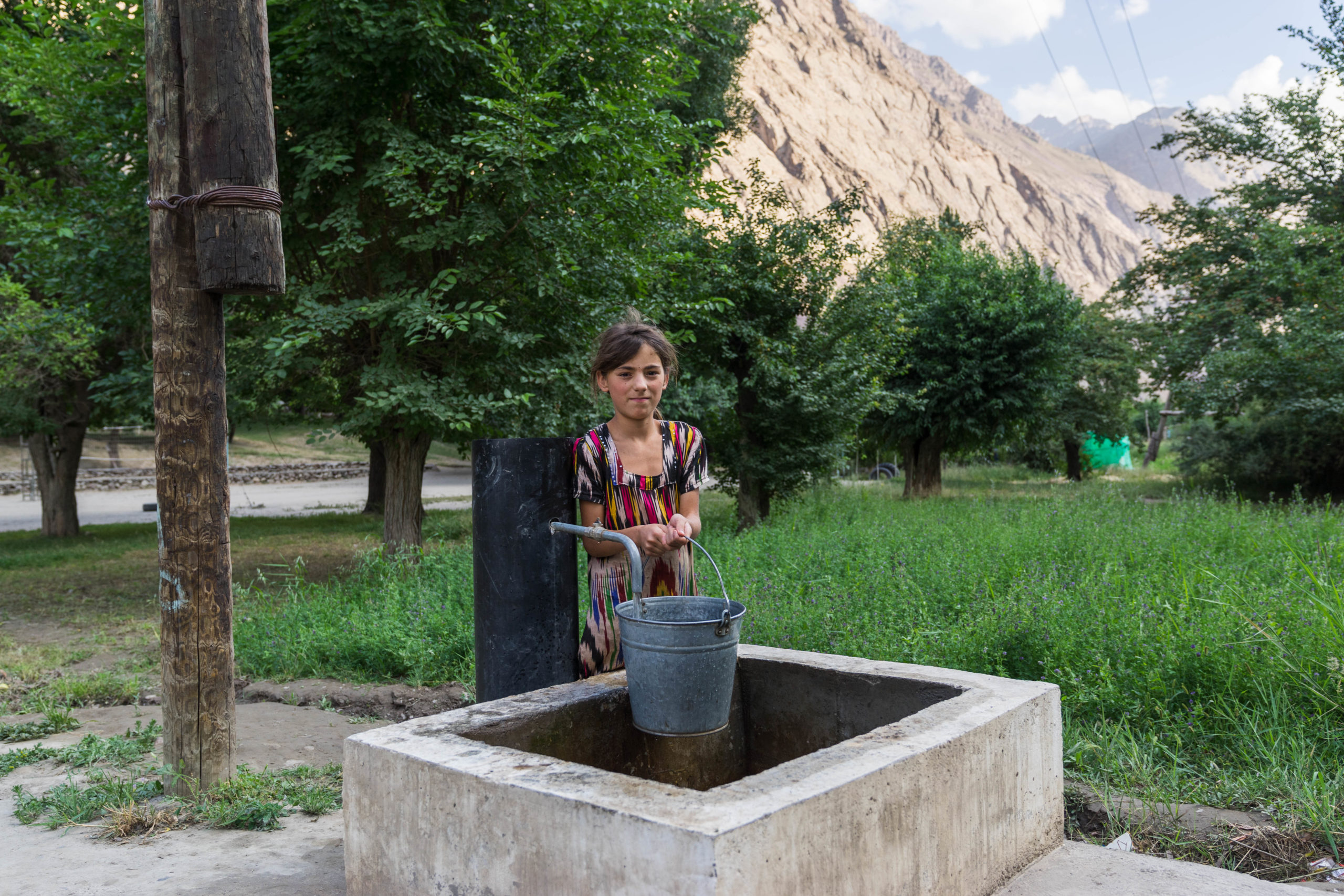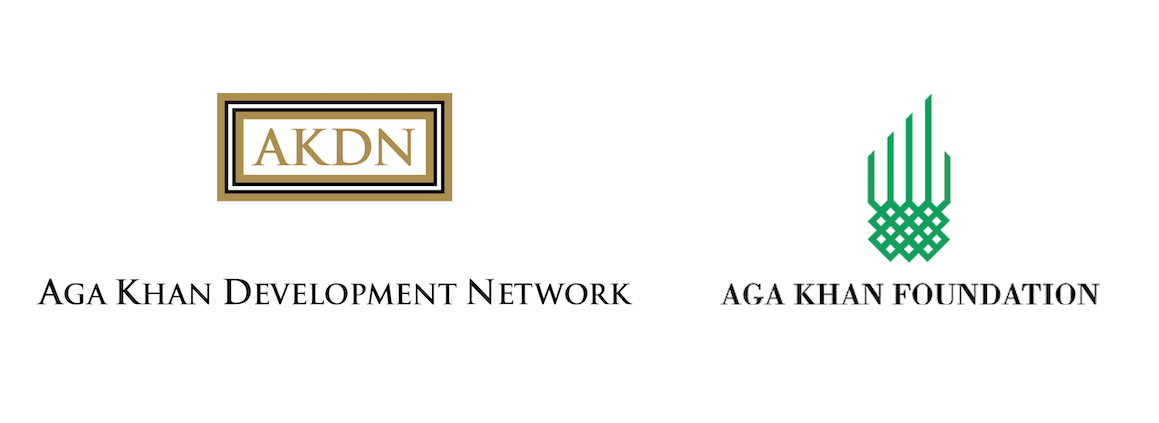Reaffirming and recognising its commitment to the role of water as being essential for resilience and sustainable development, the Aga Khan Development Network (AKDN) participated in the Second High-Level International Conference on the International Decade for Action “Water for Sustainable Development”, 2018-2028.
Taking place from 6-9 June 2022 in Dushanbe, the conference included a high-level delegation from the Government of Tajikistan, including Prime Minister, H.E. Mr. Qohir Rasulzoda, championing Tajikistan’s commitment towards their National Development Strategy on water management. This hybrid conference also welcomed international delegates including high-level representatives of the UN member states, UN agencies, international and regional organisations, international financial institutions, businesses, NGOs, civil society, academia, and media.
The Founder of Peace and National Unity, Leader of the Nation, President of the Republic of Tajikistan Emomali Rahmon, expressed that the conclusions from this conference will significantly contribute towards the United Nations Water Conference in 2023, which will be held under the co-chairmanship of the Republic of Tajikistan and the Kingdom of the Netherlands.
AKDN also co-hosted a side event with the Swiss Development Cooperation which brought together academic experts, development practitioners, and policy makers to focus on the consequences of climate change on vulnerable water sources and the impacts this has on people and their livelihoods in Central Asia.
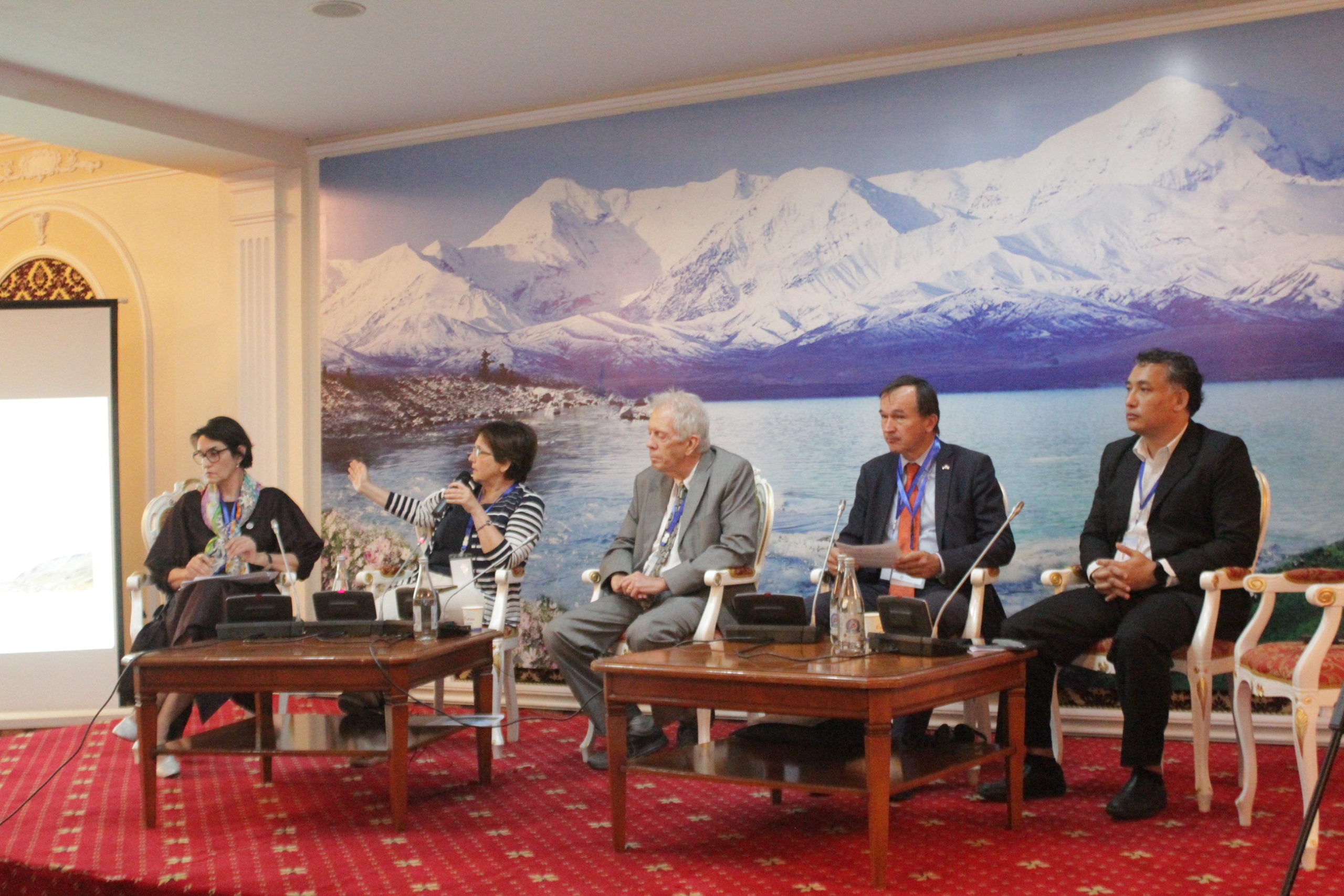
“We have no choice and must improve our current practices of water use, explore, and apply appropriate adaptation measures today to be ready for different scenarios of water availability in future.”
Kishwar Abdulalishoev, CEO, AKF Tajikistan
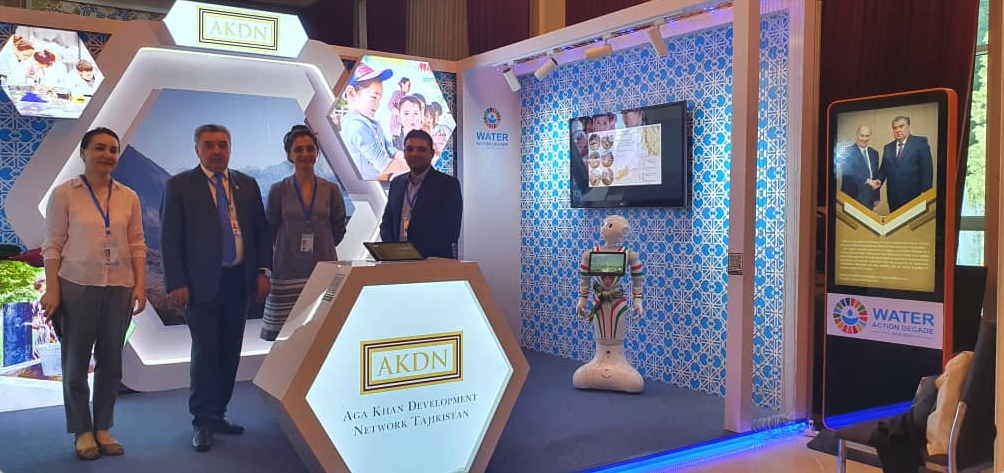
Qozidavlat Qoimdodov, the AKDN Resident Representative to Tajikistan emphasised the role of Tajikistan organising the conference: “As an initiator of tackling the problems related to climate change, Tajikistan was highly commended by the participants of the Dushanbe Water Conference and was considered a lead country in this direction.”
Tajikistan’s Minister of Energy and Water Resources, Daler Jumaev, advocated the unwavering commitment towards the preservation of glaciers – a lifeline not only for communities in Tajikistan but also for downstream communities and all of Central Asia. Highlighting the importance of effective water management in mountainous communities in Central Asia, Kishwar Abdulalishoev, the Chief Executive Officer AKF Tajikistan noted: “the demand for water due to growing populations, irrigation needs, and the impacts of climate change are increasing the pressure on existing water availability. We have no choice and must improve our current practices of water use, explore, and apply appropriate adaptation measures today to be ready for different scenarios of water availability in future.”
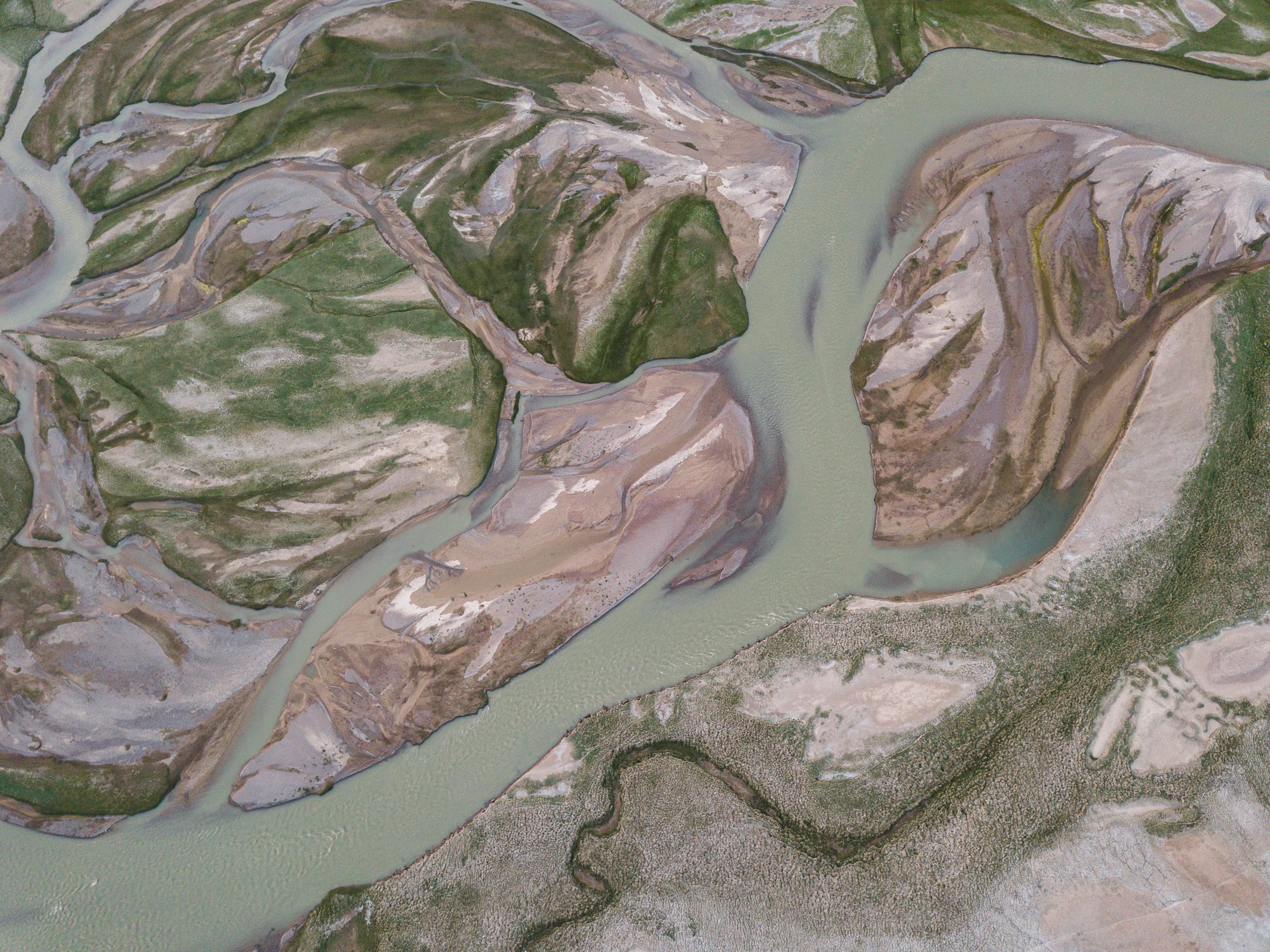
To complement the side event, AKDN hosted an environmentally friendly exhibition, showcasing their projects on effective water management within Tajikistan, and wider South and Central Asian countries. The exhibition was visited by close to 800 delegates including foreign ambassadors, UN representatives, heads of international development agencies and entrepreneurs.
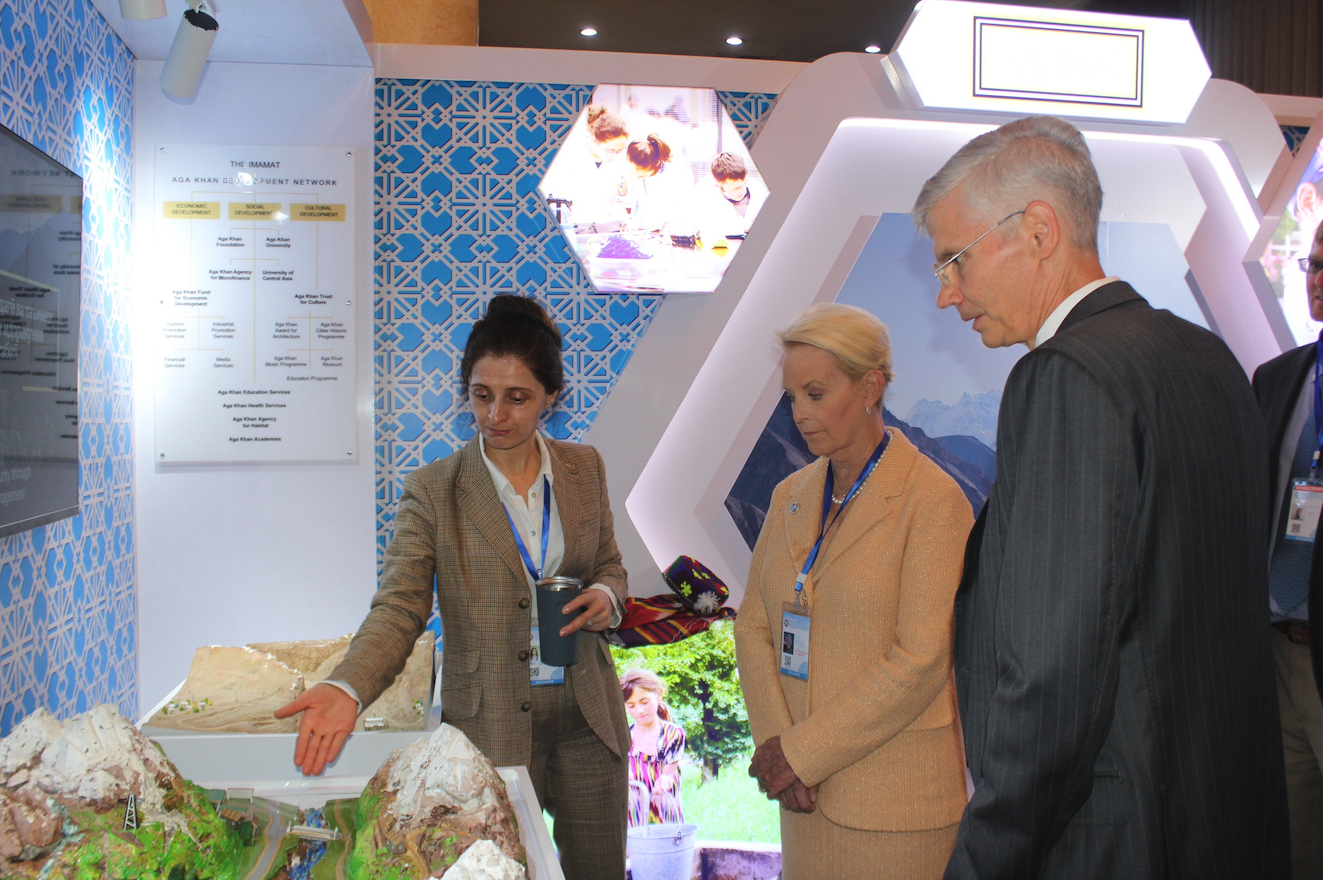
Underscoring the contributions of AKDN in hydro-energy sector, William Hall, the Director General Development Office for USAID in Tajikistan stated, “The exhibition at the water conference provided a clear presentation of what AKDN is doing to increase access to electricity in one of the most remote areas in the world. By providing reliable and affordable energy to historically underserved populations, AKDN is magnifying the impact of all of USAID’s development interventions.”
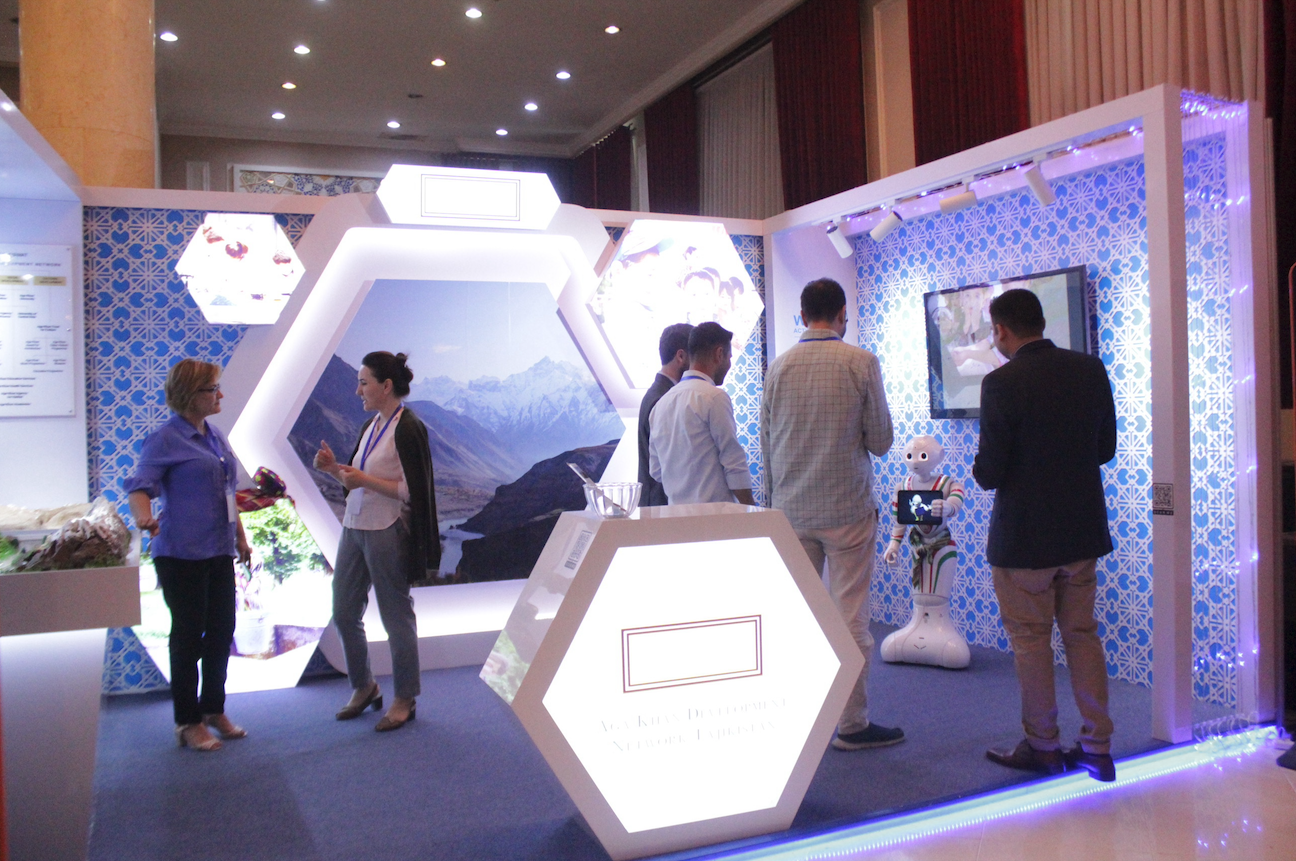
After visiting the exhibition, Salome Steib, Director of the Swiss Cooperation said: “Switzerland has been supporting Tajikistan for 30 years through different organisations and AKDN is one of them. Our long-standing cooperation with the AKDN is focused on enhancing the quality of life for Tajik population. AKDN’s booth at the Second High Level Water Conference is an excellent illustration of their programme activities on water supply and sanitation, climate change in Tajikistan and Central Asia region. The presentation of the activities using digital technologies such as QR code to access the online information and a funny robot “Sino” is highly innovative and environmentally friendly.”
Overall, AKDN’s participation in the Dushanbe Water Conference demonstrates its strong commitment to scale cross sectorial, climate-smart water initiatives that can empower communities to withstand the effects of climate change and increase their climate resilience.
